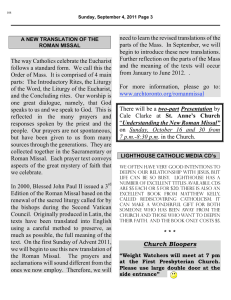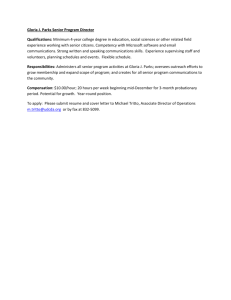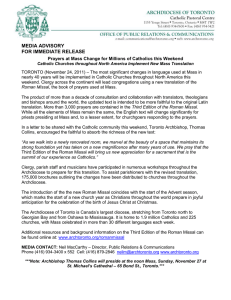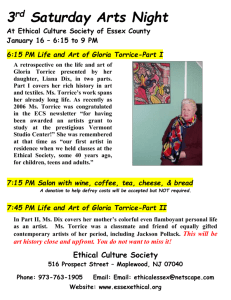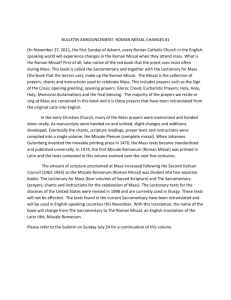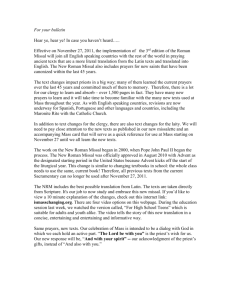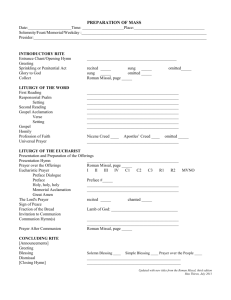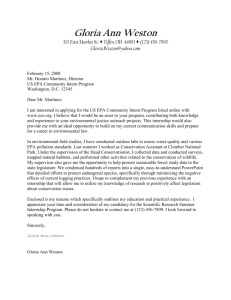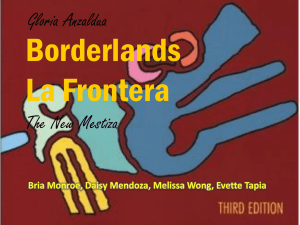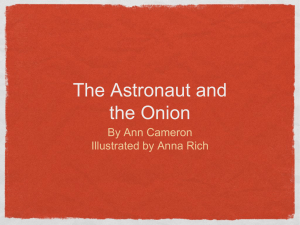The Gloria in the New Roman Missal
advertisement
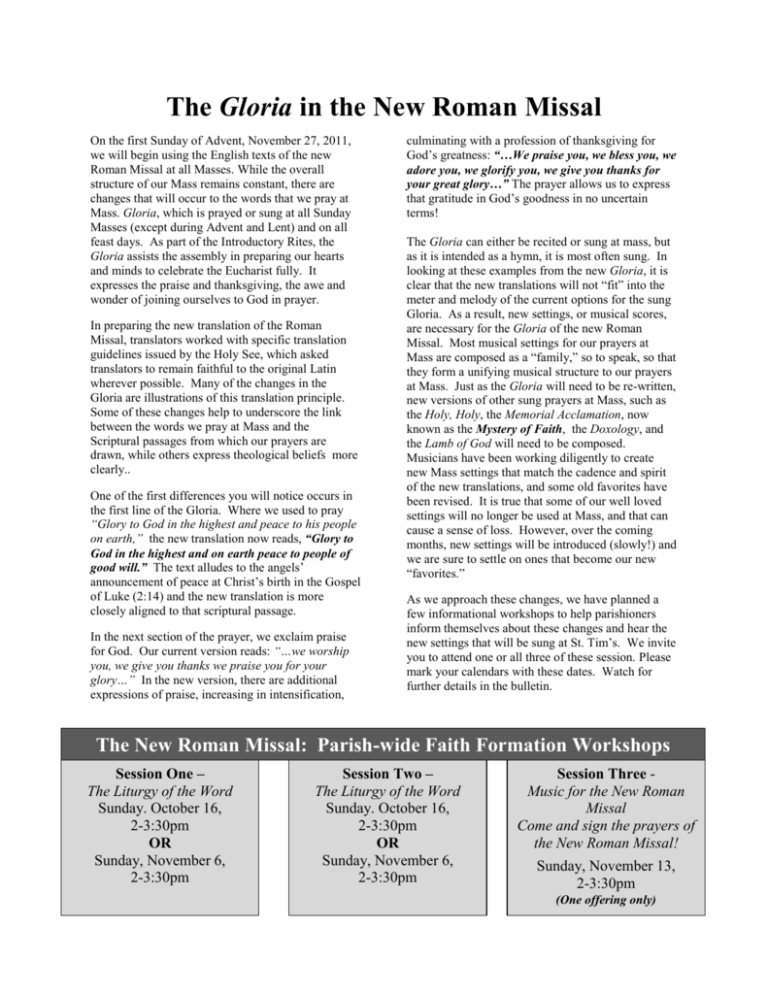
The Gloria in the New Roman Missal On the first Sunday of Advent, November 27, 2011, we will begin using the English texts of the new Roman Missal at all Masses. While the overall structure of our Mass remains constant, there are changes that will occur to the words that we pray at Mass. Gloria, which is prayed or sung at all Sunday Masses (except during Advent and Lent) and on all feast days. As part of the Introductory Rites, the Gloria assists the assembly in preparing our hearts and minds to celebrate the Eucharist fully. It expresses the praise and thanksgiving, the awe and wonder of joining ourselves to God in prayer. In preparing the new translation of the Roman Missal, translators worked with specific translation guidelines issued by the Holy See, which asked translators to remain faithful to the original Latin wherever possible. Many of the changes in the Gloria are illustrations of this translation principle. Some of these changes help to underscore the link between the words we pray at Mass and the Scriptural passages from which our prayers are drawn, while others express theological beliefs more clearly.. One of the first differences you will notice occurs in the first line of the Gloria. Where we used to pray “Glory to God in the highest and peace to his people on earth,” the new translation now reads, “Glory to God in the highest and on earth peace to people of good will.” The text alludes to the angels’ announcement of peace at Christ’s birth in the Gospel of Luke (2:14) and the new translation is more closely aligned to that scriptural passage. In the next section of the prayer, we exclaim praise for God. Our current version reads: “…we worship you, we give you thanks we praise you for your glory…” In the new version, there are additional expressions of praise, increasing in intensification, culminating with a profession of thanksgiving for God’s greatness: “…We praise you, we bless you, we adore you, we glorify you, we give you thanks for your great glory…” The prayer allows us to express that gratitude in God’s goodness in no uncertain terms! The Gloria can either be recited or sung at mass, but as it is intended as a hymn, it is most often sung. In looking at these examples from the new Gloria, it is clear that the new translations will not “fit” into the meter and melody of the current options for the sung Gloria. As a result, new settings, or musical scores, are necessary for the Gloria of the new Roman Missal. Most musical settings for our prayers at Mass are composed as a “family,” so to speak, so that they form a unifying musical structure to our prayers at Mass. Just as the Gloria will need to be re-written, new versions of other sung prayers at Mass, such as the Holy, Holy, the Memorial Acclamation, now known as the Mystery of Faith, the Doxology, and the Lamb of God will need to be composed. Musicians have been working diligently to create new Mass settings that match the cadence and spirit of the new translations, and some old favorites have been revised. It is true that some of our well loved settings will no longer be used at Mass, and that can cause a sense of loss. However, over the coming months, new settings will be introduced (slowly!) and we are sure to settle on ones that become our new “favorites.” As we approach these changes, we have planned a few informational workshops to help parishioners inform themselves about these changes and hear the new settings that will be sung at St. Tim’s. We invite you to attend one or all three of these session. Please mark your calendars with these dates. Watch for further details in the bulletin. The New Roman Missal: Parish-wide Faith Formation Workshops Session One – The Liturgy of the Word Sunday. October 16, 2-3:30pm OR Sunday, November 6, 2-3:30pm Session Two – The Liturgy of the Word Sunday. October 16, 2-3:30pm OR Sunday, November 6, 2-3:30pm Session Three Music for the New Roman Missal Come and sign the prayers of the New Roman Missal! Sunday, November 13, 2-3:30pm (One offering only)
